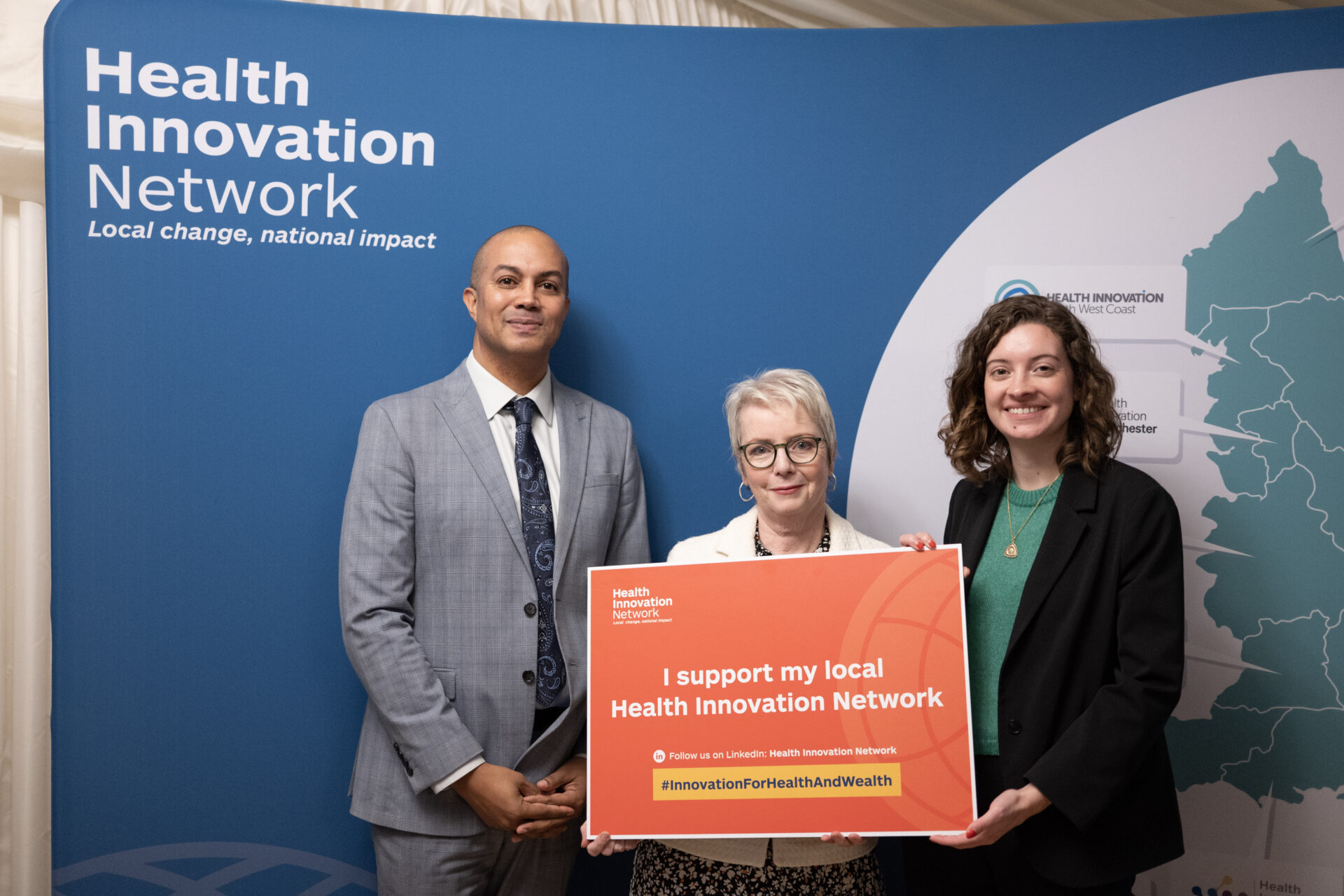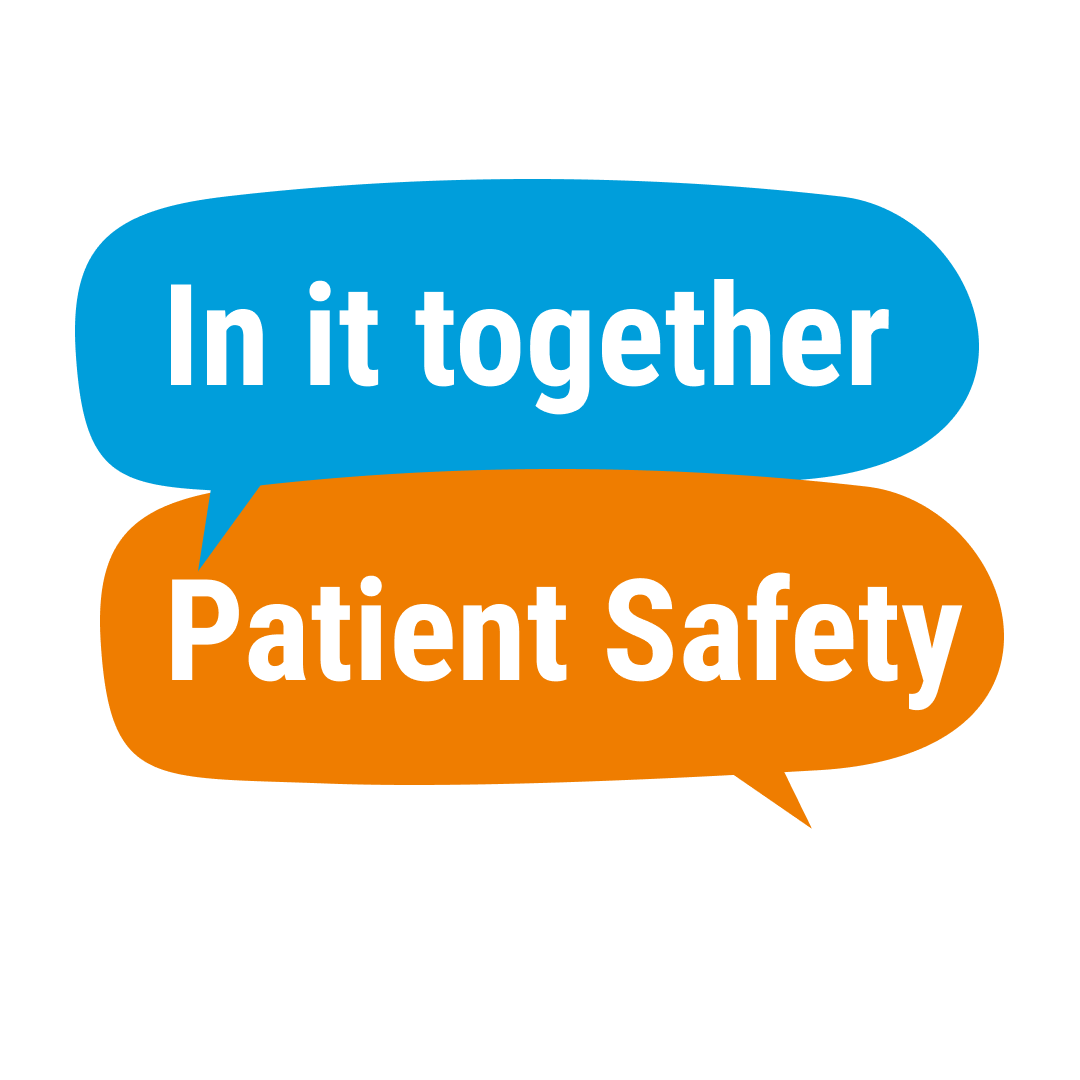
World Patient Safety Day 2023
Working together with patients, families and the public is fundamental to identifying opportunities to innovate in ways that improve lives. The theme of this year’s World Patient Safety Day is ‘engaging patients for patient safety’ and here we share examples of where patients have significantly influenced the direction of Academic Health Science Network (AHSN) programmes.
Helping patients with chronic pain to live well
Around 15.5 million people in England (34% of the population) have chronic pain1.
Chronic pain can affect every part of a person’s life. When unmanaged, chronic pain can make it difficult to perform everyday tasks like walking, dressing and going to work, maintain relationships with family and friends, and take part in social activities and hobbies. Emotionally, chronic pain can cause feelings of sadness, anxiety, depression, and anger. It’s important to work together with patients to find out how to best support their individual needs.
The South London Medicines Safety Improvement Programme (MedSIP) has been working jointly with the other 14 Patient Safety Collaboratives (PSCs) hosted by AHSNs and commissioned by the NHS England Patient Safety Team to improve chronic (non-cancer) pain management by finding alternatives to opioids. National Institute for Health and Care Excellence (NICE) guidance states that opioids should not be used to manage chronic non-cancer pain as the harm outweighs the benefits.
In her work as Senior Project Manager (Registered Pharmacist) and Medicines Workstream Lead at the Health Innovation Network, Natasha Callender led an experience-based co-design project working with the HIN’s involvement team and lived experience partners using the Point of Care Foundation methodology:
“The aim of this project was to improve chronic pain management by bringing the lived and learned experience of staff and patients together to prioritise and co-design solutions as equal partners.
“We co-produced recommendations for peer support and group education for people living with chronic pain to share with the system. We also developed a patient film and poster to raise the awareness of how connecting with activities, groups, and services in local communities can support people to live well with chronic pain.”
Find out more about the HIN project or see an overview of progress and next steps for this project.
Engaging with the public to carry out health checks in local communities
With one death every four minutes, nearly 140,000 deaths each year, heart and circulatory diseases cause a quarter of all deaths in England2. Half of all heart attacks and strokes are associated with high blood pressure, which is the leading modifiable risk factor for heart and circulatory disease in England3. Treatment for high blood pressure substantially lowers the risk of cardiovascular disease4.
The Innovation Agency has created a team of volunteer Heart Heroes to deliver blood pressure checks, cholesterol checks and pulse tests. This built on the work of volunteer Atrial Fibrillation (AF) Ambassadors who carried out pulse tests on more than 5,000 people in two years, of whom around 170 were referred for further diagnosis and treatment. In 2022 the AF Ambassadors became Heart Heroes, delivering a wider range of tests in community settings.
In 12 months, almost 3,000 people were given blood pressure and pulse tests, of whom 300 were referred to their GPs with high blood pressure and 75 with suspected AF.
There are now around 50 volunteer Heart Heroes. Recruited and trained by the Patient and Public Involvement Team at the Innovation Agency, Heart Heroes target geographic areas which often miss out on screening opportunities – and which have high rates of cardiovascular and respiratory diseases.
The team are active in the community, carrying out screening at mosques, temples, supermarkets, libraries, and sporting fixtures in addition to joining wellbeing teams on bus tours around the region, delivering screening at a range of events such as fairs and festivals.
Find out about former patient and now Heart Hero Wendy Westoby’s story.
Supporting patients in preparing for a Structured Medication Review
In England, the NHS primary care system dispenses over 1 billion prescription items every year. As more people live longer with multiple long-term health conditions, the number of medicines they take often increases. This can create a significant burden for the person trying to manage multiple medicine regimes, and in some cases it can cause harm.
As part of the AHSN Network’s national Polypharmacy programme, a range of evidence-based resources have been developed to help people prepare to attend a Structured Medication Review with their GP, pharmacist or other healthcare professional.
AHSNs ran patient focus groups to pilot existing materials already available and inform the selection for further testing. Over a three-month period, testing of these chosen materials took place, with a minimum of 50 patients (or their carers) who were regularly taking more than five medications.
Patients agreed that the materials were useful in preparing for a medication review by helping them to think about the medicines they take and what they needed to discuss. They also reported feeling more confident talking to their GP or pharmacist about their medicines after reading the materials and that they were able to have meaningful conversations.
Patients, clinicians and programme leads also suggested a range of further improvements:
- Development of more accessible versions (easy-read, translations into various community languages and colourblind-friendly) to minimise the risk of excluding certain groups.
- Materials to clearly state their purpose and provide clear questions for patients to use in conversations with their GP or pharmacist.
- Sharing of the materials through various and accessible channels in advance to ensure consultations are not too long for the capacity available, such as through text message links, quick phone calls, posters in waiting rooms.
- Materials to be endorsed to increase in trust and acceptability.
- Working closely with pre-existing networks, such as other AHSNs and primary care networks, to engage GP practices and pharmacists as much as possible.
These recommendations have all been incorporated into a new suite of materials, available in nine different languages and various formats, including audio. The resources are free to download from the AHSN Network website.
Professor Tony Avery, NHS England’s National Clinical Director for Prescribing, will be the guest speaker at a lunchtime webinar on Monday 25 September to launch the suite of patient resources. Register for your place here.
Find out more about the Polypharmacy programme here.
Listening to patients to understand how they use technology in the home
Together with NIHR Applied Research Collaborative Wessex (NIHR ARC Wessex), Wessex AHSN’s Healthy Ageing and Insight programme teams embarked on a journey to listen to the voices of 60 adults aged 65+ and living with frailty, finding out what matters most to them about digital remote monitoring (DRM).
The listening activities were part of the Wessex NHS Insights Prioritisation Programme (NIPP) project. The team formed a public and patient involvement (PPI) group, meeting quarterly to assist with project development, feedback, and recommendations at each stage of the project. The PPI group was crucial in identifying patient needs and ensuring the project continued to be ethical and accessible.
They visited six community groups in a diverse range of settings, including those from ethnic minority backgrounds. What they heard crystalised the importance of listening to community partner voices before rolling out new digital and remote monitoring ways of working.
“We consider face-to-face care as the gold standard and need time and support to trust digital remote monitoring.”
Comment made by community partner from one of the listening group activities.
The NIPP project didn’t only enable expert healthcare professionals to get a clearer understanding of community partner views; its comprehensive review of feedback contributed to recommendations for Integrated Care Boards to effectively place patients at the centre of their care.
The key recommendations were:
- Digital remote monitoring should enhance not replace face-to-face care
- Digital remote monitoring technology should have user friendly instructions and be simple to use and understand
- Tailor digital remote monitoring to individualised needs for personalised care
- Consider that digital remote monitoring may be seen as helpful for some and limiting for others
- Offer assurance and transparency of data sharing
- Digital remote monitoring care pathways should be co-designed with individuals living with frailty, their informal caregivers, professionals, and public contributors.
Considering these recommendations before implementing new technologies promotes patient safety in health and care and provides care that matters most to patients and their families.
Read more about the project in the summary report and the full report.
Engaging with patients for patient safety is central to work across the AHSN Network. See the latest update of the AHSN Network patient safety plan showing the impact made across priority areas.
Find your local AHSN to discuss support for patient safety where you work.
Footnotes
- Source: Public Health England (2020). Chronic pain in adults 2017: Health Survey for England. PHE, London
- Source: British Heart Foundation
- Source: British Heart Foundation
- Source: British Heart Foundation

Join us on 11 and 12 June in Manchester to find out how the Health Innovation Network is improving health and driving wealth through health innovation. This year we’ll be joined on our stand by 18 Network-supported innovators, showcasing innovations which are helping to deliver the Government’s three shifts for the NHS and solve some [...]

The Health Innovation Network is delighted to announce the launch of Innovation Insights, a brand-new webinar series designed to highlight the latest in health innovation, offering attendees valuable insights into the adoption and spread of innovation within the health and care landscape. Each interactive webinar will feature: Expert presentations: Delivered by thought leaders across [...]

The Health Innovation Network, at an event sponsored by Sarah Coombes MP, brought together parliamentarians including Health Minister Karin Smyth MP and Chair of the Science, Innovation and Technology Committee, Chi Onwurah MP to meet with six innovators supported by health innovation networks across the country and their NHS partners. At the Meet the Innovators: [...]






